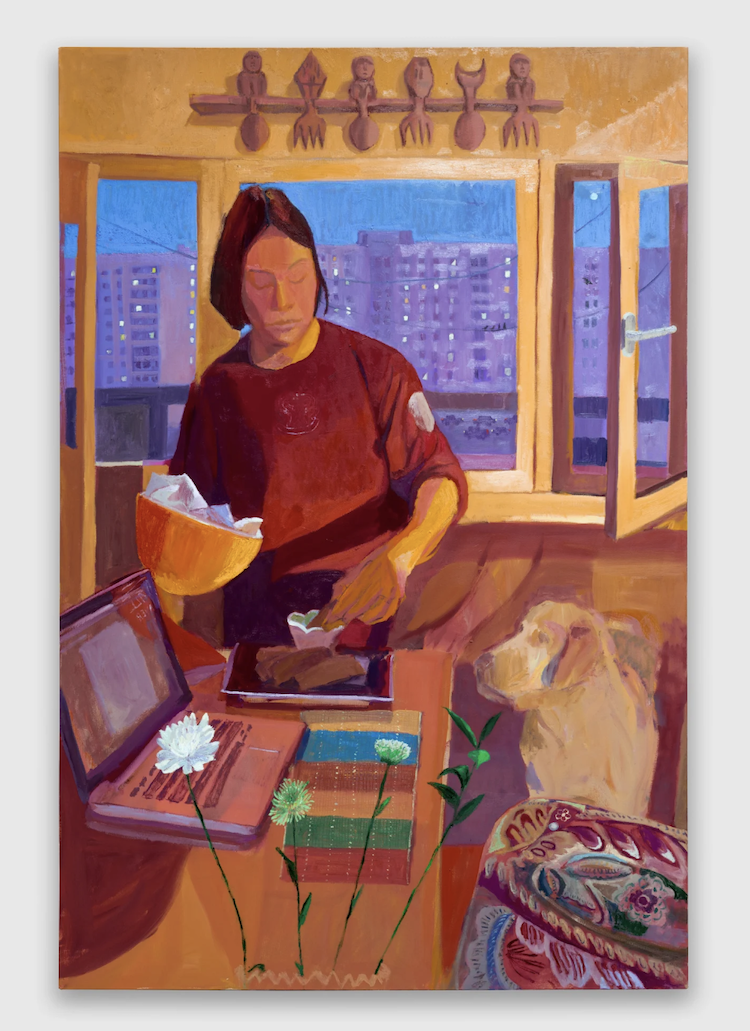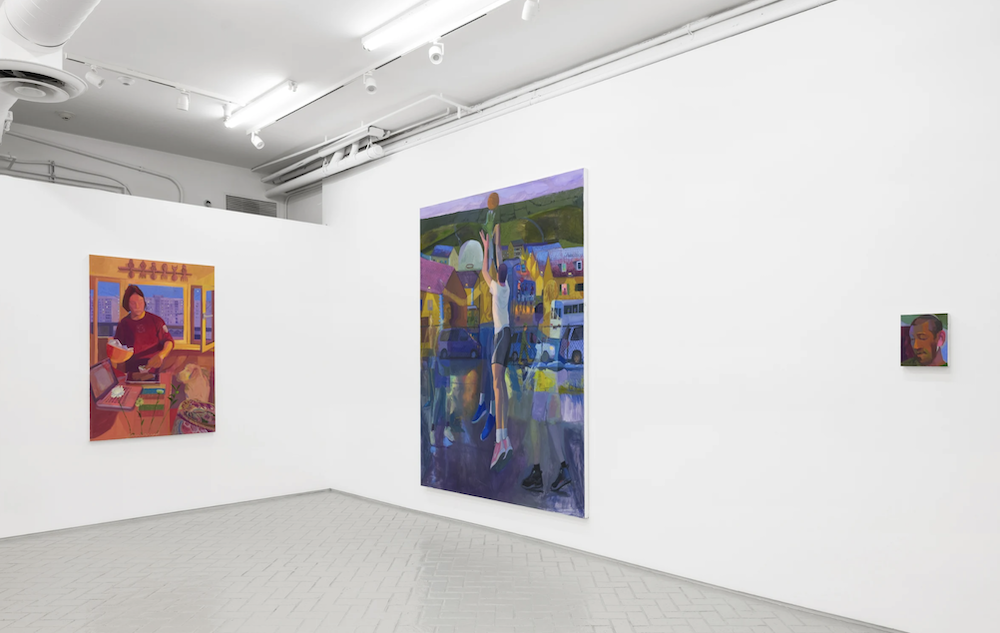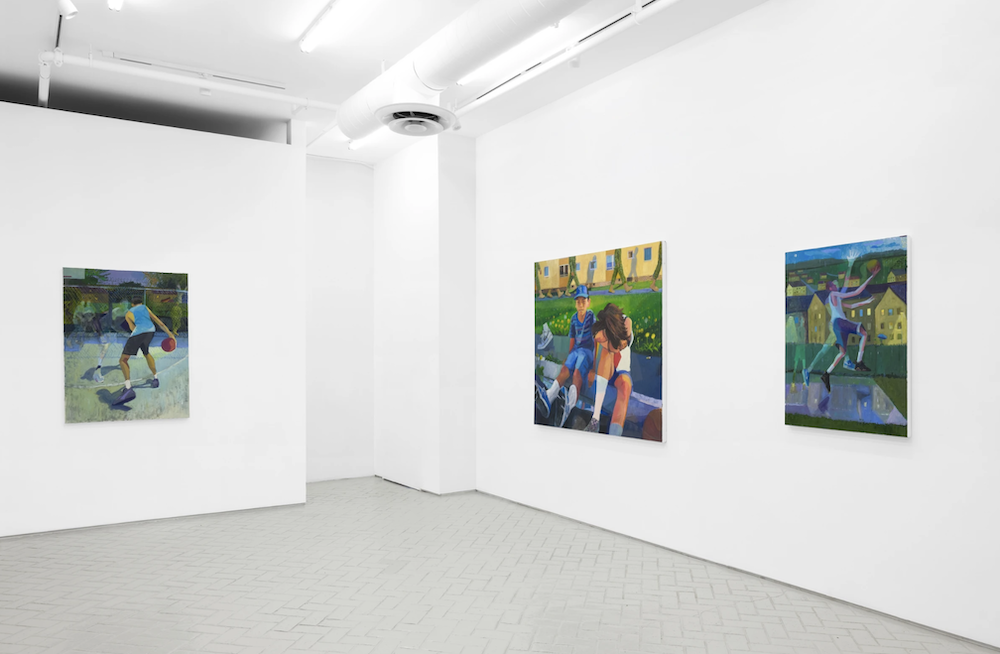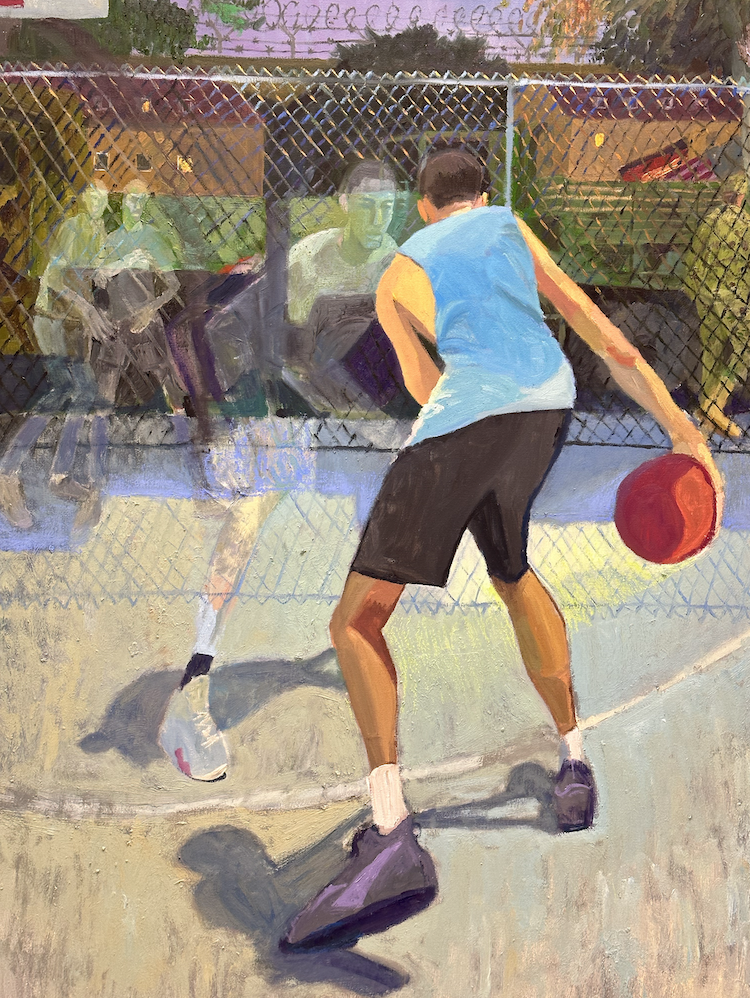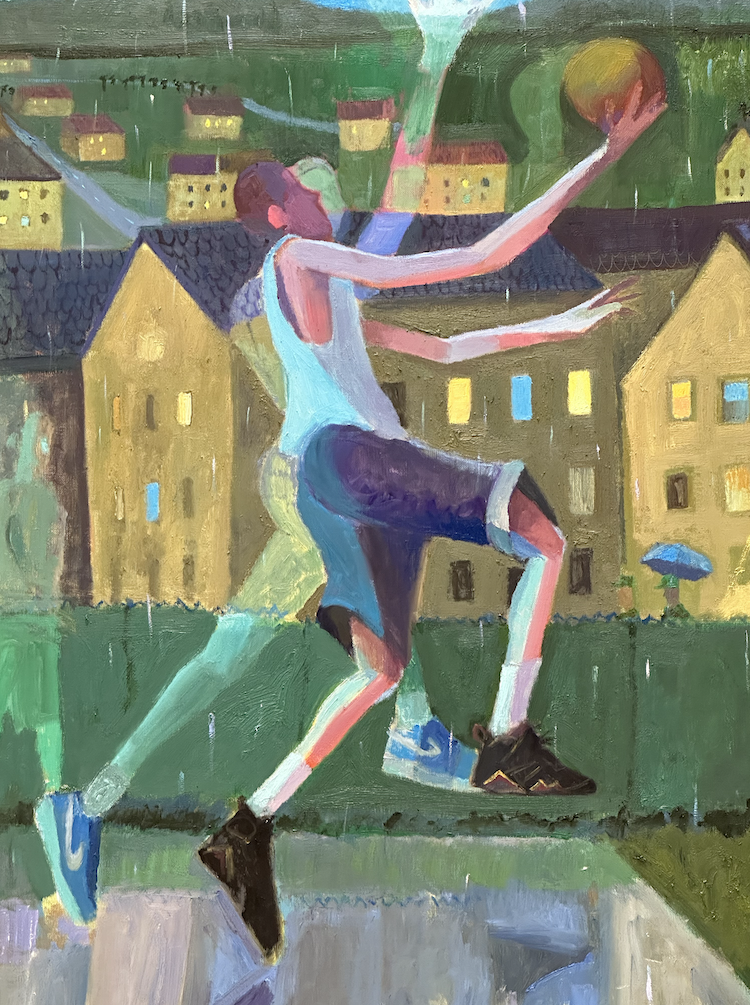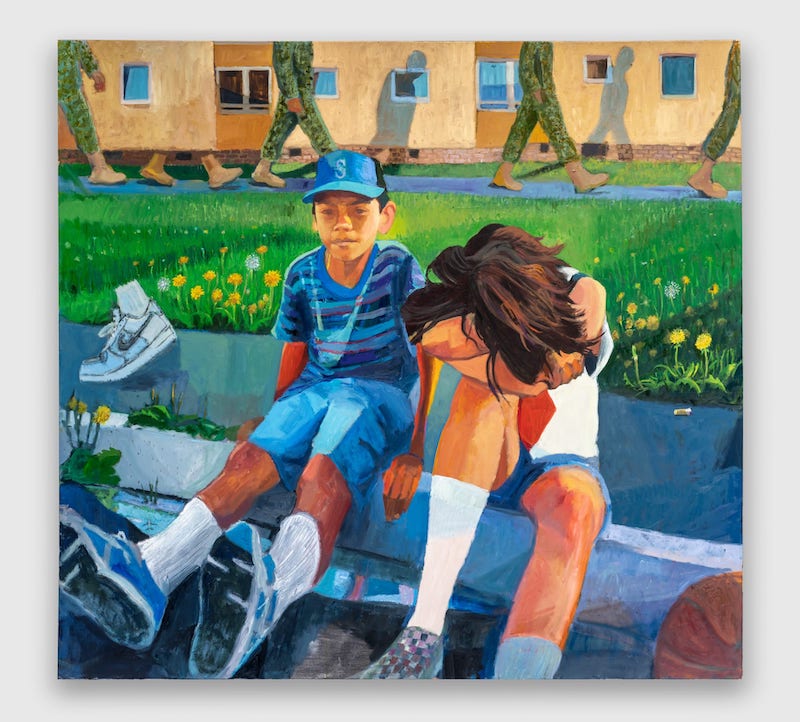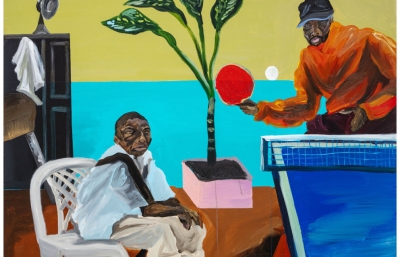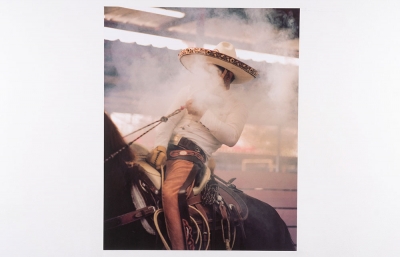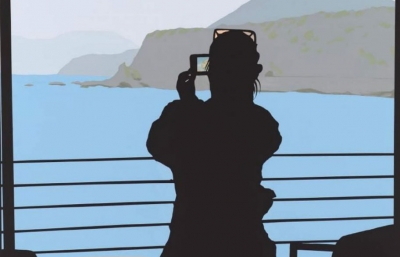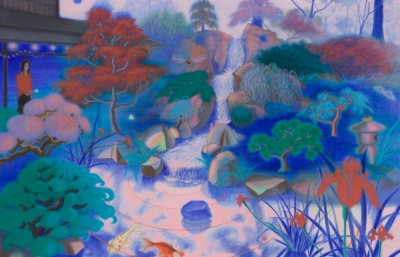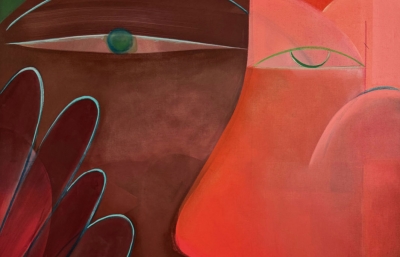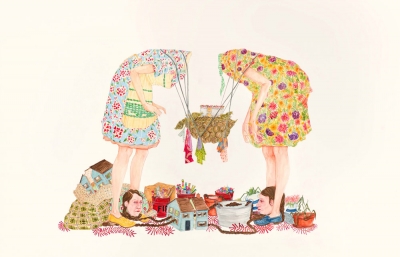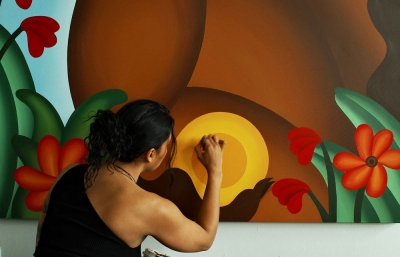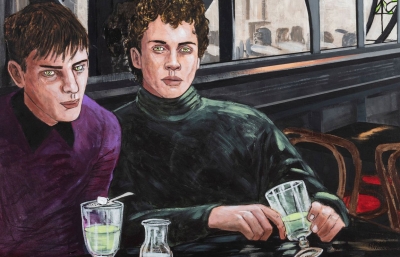Shulamit Nazarian, Los Angeles is pleased to announce Overtime, an exhibition of new paintings by Kansas City, Missouri-based artist Mikey Yates. This marks the artist’s first solo exhibition with the gallery and his first in Los Angeles.
Sourcing from memory and family photographs, Mikey Yates’ paintings illustrate the tender intimacy of quotidian experiences and personal relationships. The artist centers his exploration of these universal themes on his upbringing as a Filipino-American with both parents in the military. Having relocated every few years in his youth to cities around the globe, his genre scenes evoke a sense of transience, shifting between memory, the present moment, and the anticipation of change to come.
Drawn from a significant period of the artist’s life between 2002 and 2006, Overtime recounts the tense narrative of coming of age as an adolescent on military bases at the height of America’s war with Iraq and Afghanistan. Time is a prevalent and recurring theme in Yates’ practice. The sustained moments preserved in his paintings take on an urgency in Overtime, as the artist unveils the emotional stakes at the heart of his work — both on the court and in life. Underlying the paintings is the mental strain from perpetually running the odds of your loved ones’ survival within the military industrial complex, alongside the repeated loss of childhood friendships that occur when a family is perpetually uprooted.
With time and place electrifying the scenes presented in Overtime, Yates captures the setting, both physical and mental, of these memories in both large and intimately scaled paintings. In the largest painting in the exhibition, a work from the artist’s Imaginary Defenders series, Yates’ depicts a solo game on a basketball court dimly illuminated at dusk. The primary action takes place on the foregrounded court, where a boy plays with a group of translucent figures, their limbs elongated by the rapid motion of the game. In addition to the unbounded space of imagination and memory, these works illustrate the enduring, expressive inner world of a child isolated within a space that suppresses creativity. Around the court, kids cross the street on their way back from school and a series of military figures wait at a bus stop. Everyone is on the move to the next place. The distant horizon is broken by tall military buildings quoted from childhood photos. Stacked tightly together and overlapping, the buildings press in to enclose the totality of the composition, underscoring the mental space of anticipation that permeates the military base. In contrast with the basketball paintings, we also find the artist’s subjects rendered in domestic settings, depicting a range of emotions that speak to intimate familial connections, loss, and play.
The ritual of remembrance as a salve for isolation from one’s community rests at the heart of Yates’ practice. Confessional in nature, these paintings recount private moments that occur with dearest friends and family. This restorative gesture is highlighted in So Far Away, a glowing domestic scene affectionately depicting the artist’s mother serving lumpia (a Filipino dish) while the family dog looks on intently. A wooden spoon and fork sculpture, a common decoration in the Philippines symbolizing health and prosperity, hangs on the wall above her. Minimally accessorized with select meaningful objects, the temporary home becomes wholly comforting while pointing to many places at once. Beyond the window of this warm interior, the rigid structures of the base loom in the suspense of the cold night sky, the same dusky blue found in other works. Despite the overall contrast between the interior and exterior scenes of Overtime, Yates shows consistent moments of individual expression and imagination that withstand the often stifling conditions of the base.
Acknowledging the anxiety and fear of transitional states of life, the paintings of Overtime illustrate a practice for reclaiming control in unstable conditions and celebrating the cherished connections that are sources of peace even during moments of turbulence. Rendered with reverence for the past, Yates’ work is deeply rooted in the personal—a persistent attempt to remain connected to one’s cultural background, friends, and family—and the formative moments of youth that create the very foundation of self.




